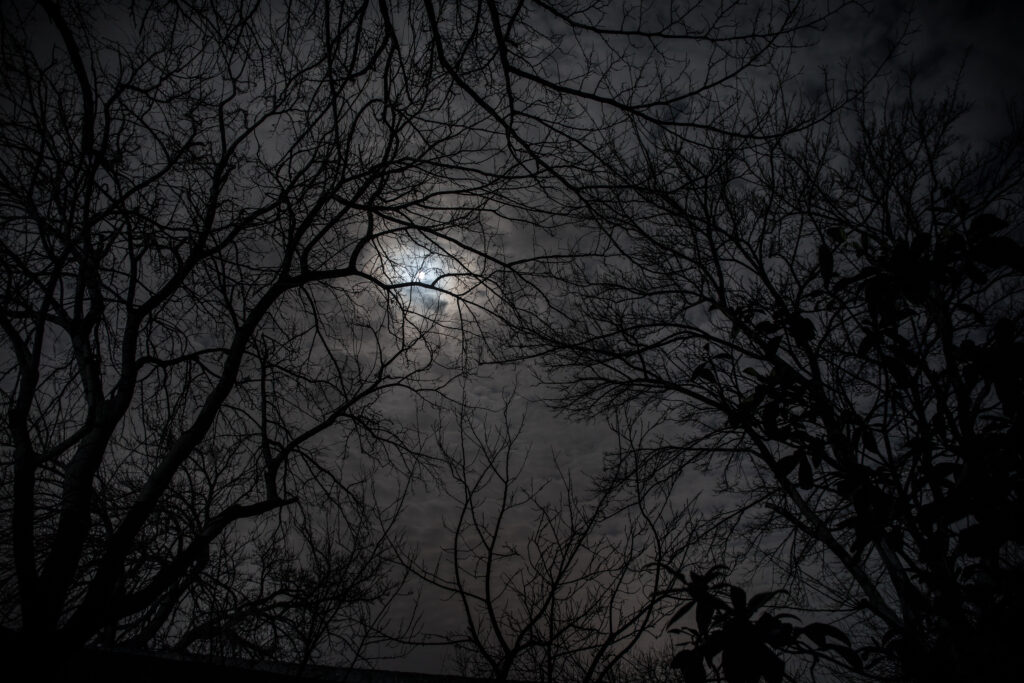An Ants’ sight is not the same as a humans. Instead, ants have ommatidia, which are complex eyes made up of many smaller eye-like components. Their eyes have less direct focus but are almost a matrix of LEDs. Even with these complex eyes, can ants see in the dark?
Ants can see in the dark. Many ants prefer to be in the dark, and this is because ants actively avoid regions with humans and other predators around. These regions usually have ample sunlight and lighting. Ants use the darkness to their advantage to gather resources and are comfortable without light.
Night vision is the capacity to see in reduced or dark environments.
Many animals have natural night vision because of biological advancements that we sadly weren’t born with.
It made more sense for their species to be active at night compared to during the day.
This makes sense, as most large predators sleep at night, allowing ants to hunt and gather resources freely without being tracked and hunted.
What advantage does this have for ants and their ant colonies?

Why Do Ants Have Night Vision?
Ants have night visions due to different energy ranges that ants can detect with their ommatidia. Nocturnal ants can sense infrared energy emitted from objects (heat), which is just outside of our optic range.
Remember, waves are formed when light is emitted from any origin, but it usually comes from the sun.
While we know these as light waves, they are just energy (heat, light, etc.)
To have night vision, you have to detect other energy sources that aren’t just light.
Seems pretty obvious, as there isn’t any light in the dark.
Nocturnal Ants (Non-Diurnal) can sense this thermal energy around these objects emitting heat.
Remember, all living things emit thermal energy. (Source)
Basically, all ant species can see anything living that emits this energy in the dark.
This is a considerable advantage; imagine if you could see the heat from every object in the dark!
While humans don’t have these same luxuries, we have developed some biological advancements that have helped us out while in the dark.
Our retina and pupil have advanced to the point that gives us some vision in low-light situations.
Even though humans do not have night vision, we have developed technologies that mimic what nocturnal ants see.
[amazon box=”B0B12CD9YV”]
Are Flying Ants Attracted to Light?
The reason flying ants are attracted to light is because flying ants are ants about to breed. This includes winged queen ants and winged males. These winged ants use light from both the sun and moon to guide both where their nuptial flights take place and the timing of it.
Many ant species, like army ants, seem fully blind.
So illumination does not affect their behavior or body movements.
Think about it, If your species has never been able to see the light, why would it affect you?
Flying ants are frequently seen on the ground, while other flying insects cling to light sources.

This is because flying ants primarily aim to breed and build new colonies.
As a result, determining whether some ants are phototactic (the ability to move towards a light source) is difficult.
While ants do utilize light during breeding, they seem to avoid it when choosing a location for their colony.
Ants prefer to pick areas with a high chance of being left alone.
Being in light or darkness has little effect on most ants, as they depend primarily on thermal energy and pheromones for navigation.
They do not start their colonies and nests based on the sunlight that the nest would receive.
Researchers have also discovered some exciting things; the temperature on the surface and inside the nest can influence an ant’s sensitivity to light.
Are Ants Attracted to Light
Not all ants are attracted to light. Many ants are nocturnal, preferring the darkness. Phototactic ants and ants that are about to breed are attracted to light. Many ants use the light as a signal of warmer temperatures on the surface and that the hibernation period is over.
Not all ants can see in the darkness.
The ones that can are very active at night with a very unique set-up.
While Diurnal ants are daylight ants, nocturnal ants have distinct traits in their ommatidia that allows them to see in low or no light conditions.
Their eyes are bigger than other ants (Diurnal).
The eyes of these ants prefer the dark and do better in the darkness.
They use this to their advantage and hunt for vital supplies at night.
While they are not completely blind during the day, If you had this advantage of being able to hunt at night, you’d use it too!
Why Are Some Ants Drawn to Lighting?
Sometimes, light sources are all ants have to find new resources and new mates.
Below we go over the critical points and how ants utilize this light.
Ants use the sun and the moon as a way to track their position like humans use a radar or a compass.
The moon and sun are great for navigation since they are continuous (and very far away).
This is why sometimes you’ll see winged ants constantly going at a bulb.
The ant has become confused by the light, and since it’s biologically programmed to go towards the light, it just keeps hitting the bulb over and over.
You’ll see this a lot with other insects as well.
Ants Use Light As A Signal For Danger
Ants are very smart creatures.
They know that an area that has a ton of resources and a ton of really good light – will have a lot of predators.
Ants prefer to set up their colonies and nests away from any predators.
The ants use the light as a signal that this spot probably wouldn’t be good for our nest.
Even at a more simple level, ants will set up their colonies in the shade, as it’s harder to see (for predators) and easier to see for the ants (nocturnal).
Ants Use Light To Find Obstacles
When traveling, ants run into a variety of challenges.
Even with this remarkable night vision, some things can get in the way.

These barriers may obstruct the ants’ ability to see the lighting around their nest, making it hard for them to return to their nest.
When an ant’s ability to see light is blocked, ants will quickly retreat.
An obstacle signals two things to an ant, something big is in front of me, or I can get lost.
An ant wants neither of these!
As a result, the ants must be able to quickly identify and avoid these barriers.
There are very few things that can make ants afraid, but being away from the colony will send a group of ants into a panic quickly.
Ants will get lost without light, and not being able to return to the nest is very dangerous.
Ants live a tough life!
Can Black Ants See At Night?
Black Ants are nocturnal ants that have very advanced eyes. These ants have developed very large eyes with many more compartments (ommatidia) in them.
What Kind of Light Do Ants Need?
All ants need light to indicate to the ant colony that the hibernation period is over. Phototactic Ants (Sexually mature ants both male and female) also use light to mate and to keep track of their nuptial flight schedule for both location and timing.
Are Carpenter Ants Attracted to Light
Carpenter ants are nocturnal ants that prefer to be in the dark. These ants have great night vision compared to other ants, not struggling to see in the darkness. Carpenter ants use this to their advantage to hunt during the cooler nights while pray is sleeping.
To Conclude, Can Ants See In The Dark?
While the majority of ants are nocturnal, even the ones who aren’t can see in the dark.
Ants were born with the ability to sense this thermal energy and use it to their full advantage.
While ants aren’t drawn to the light like humans are, they still do use it to guide their nuptial flights.
If you do have an ant farm, give the ants some time in the dark!
Other Common Ant Questions
When it comes to ants, there are millions of questions.
However, we have some posts that answer some of the most famous ant questions.
See those articles in this list here:


